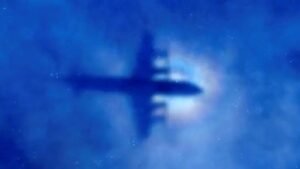Sutherland was born July 17, 1935 in New Brunswick, Canada, later moving to Bridgewater, Nova Scotia. Throughout his childhood he battled a number of serious illnesses including polio, rheumatic fever and spinal meningitis.
He left Canada to pursue an interest in acting at the London Academy of Music and Dramatic Art, and soon found work in TV and low-budget films.
He got a Hollywood breakthrough in the classic war film The Dirty Dozen, whose ensemble cast includes Lee Marvin, Charles Bronson, Ernest Borgnine and Jim Brown. It was the fifth highest grossing film of 1967.

After leaving London for Hollywood, Sutherland landed one of his most iconic roles in the 1970 anti-war comedy-drama MASH, originating the role of “Hawkeye” Pierce. MASH was one of the most successful films of the decade and is regarded as a classic.
Throughout the ’70s, Sutherland was a Hollywood leading man: his films include in the Oscar-winning Klute opposite Jane Fonda, the psychological horror Don’t Look Now, and the remake of Invasion of the Body Snatchers. He also appeared in the hit comedy Animal House.
In 1980, he starred in Robert Redford’s Ordinary People, which won the Academy Award for Best Picture. Other major films include Backdraft, JFK, Six Degrees of Separation, The Italian Job and Pride and Prejudice.

Sutherland also had success on TV, winning an Emmy Award for the 1995 film Citizen X, and a Golden Globe for the television film Path to War.
A younger generation of moviegoers was introduced to Sutherland through The Hunger Games, the hit dystopian blockbuster series: Sutherland starred as the villainous President Coriolanus Snow.
Though he surprisingly never received an Oscar nomination, he received an Academy Honorary Award in 2017, “for a lifetime of indelible characters, rendered with unwavering truthfulness.” He also received a star on the Hollywood Walk of Fame in 2011, and on the Canadian Walk of Fame in 2000.

Sutherland was married three times; he was married to actress Francine Racette for 52 years until his death. He was previously married to Lois May Hardwick and Shirley Douglas, and also had an affair with his Klute co-star Jane Fonda.
He had five children — including most famously his son Kiefer Sutherland, the actor best known for playing Jack Bauer in 24.
”I was too young to go watch my father’s films in the cinema,” Kiefer Sutherland told The Hollywood Reporter in 2017. “By the time I hit 20, VHS was available and a friend of my fathers had a lot of his films. In three days I watched Don’t Look Know, Klute, M*A*S*H, Kelly’s Heroes, 1900 and Fellini’s Casanova.”
“It was such a wide spectrum of characters, and I remember calling him up and I felt really badly that I grew up not knowing what a profoundly special actor he was, I felt horribly guilty of that. As a young actor, I had never known or seen another actor who’ve done characters so diverse either.”

Rest in peace to the iconic actor Donald Sutherland who lent his talents to so many great, classic movies — you will be missed
New Discovery on Missing Malaysian Flight 370 Will Shock You—What Researchers Just Uncovered
Recent research has uncovered new information that could change what we know about the disappearance of Malaysian Flight 370. The plane, which vanished in 2014 with 239 people on board, has been a mystery for years. Now, these new findings suggest we may have missed important clues.
The research looks at previously unknown data from the plane’s last communications and satellite tracking. This analysis has found strange patterns that challenge old theories about the plane’s final moments. One of the most surprising discoveries is evidence that the plane’s systems might have been remotely controlled, raising concerns about aviation security and the possibility of outside interference.

One of the most troubling parts of the new research is the discovery of strange patterns in the plane’s satellite communications. Data logs show unusual activity that wasn’t seen before. This suggests that the plane’s path may have been changed on purpose, leading to questions about why this happened and who might have had the ability to do it.
The research also points to odd details in the plane’s final communications with air traffic control. These irregularities suggest the plane could have been controlled by someone else, an idea that wasn’t explored in earlier investigations. This new evidence shifts the focus from a mechanical problem or pilot mistake to the possibility of external control or sabotage.

These new discoveries have serious implications. They challenge what we thought we knew about the flight’s disappearance and suggest new areas for investigation. If the plane was remotely controlled or tampered with, it raises big concerns about weaknesses in aviation technology and the risk of similar events happening in the future.
For the families of the passengers and the public, these revelations bring mixed emotions. There is hope that these findings could finally provide answers and closure, but also fear about what this means for the safety of air travel worldwide.

As researchers keep studying the new data, both the aviation community and the world are waiting for more information. These findings could change our understanding of what happened and lead to important updates in aviation safety rules.
This new development in the Malaysian Flight 370 investigation highlights how complicated and unclear modern air travel can be. It shows the need for ongoing attention and openness to solve the mysteries surrounding one of aviation’s biggest puzzles.





Leave a Reply